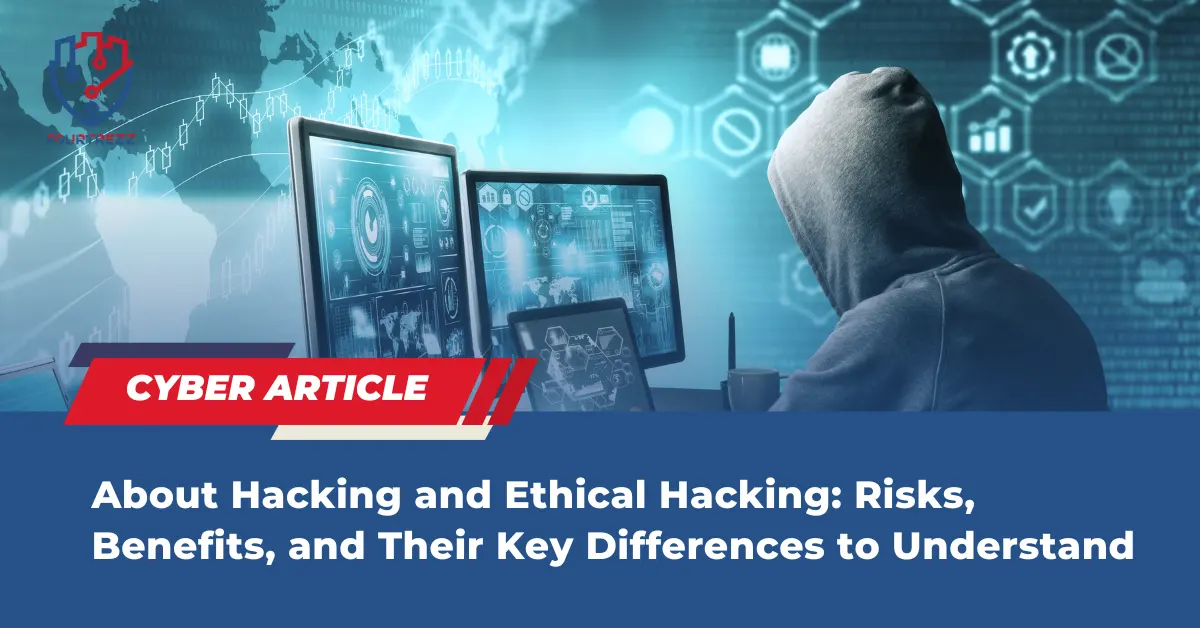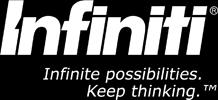Jumat, 1 Desember 2023 | 7 min read | Andhika R
About Hacking and Ethical Hacking: Risks, Benefits, and Their Key Differences to Understand
Hacking is an activity conducted to steal, damage, or alter information in computer systems or networks. Hackers use various methods and techniques to breach system or network security, including sending viruses or malware, exploiting security vulnerabilities, and hacking passwords.
On the other hand, ethical hacking is an activity performed by cybersecurity experts to find weaknesses and security gaps in systems or networks. The goal is to rectify these vulnerabilities before they are exploited by malicious hackers. Ethical hacking is conducted with the consent of the system or network owner and aims to enhance the system or network security.
Hacking first emerged in the 1960s when students at the Massachusetts Institute of Technology (MIT) began exploring the capabilities of computer systems. Initially, hacking was considered harmless, but with technological advancements, hacking practices became more popular and used for detrimental purposes. Illegal hacking activities became rampant in the 1980s and 1990s, especially after the advent of the internet, causing significant losses for organizations and individuals and increasing the need for better cybersecurity. Since then, ethical hacking has been used as an effort to improve system and network security.

Differences Between Hacking and Ethical Hacking
- Motivation
Motivation is the most fundamental difference between hacking and ethical hacking. Hacking is done with harmful intentions and often violates the law. Conversely, ethical hacking aims to improve system and network security.
- Legality
Hacking is illegal and against the law, whereas ethical hacking is conducted legally with the consent of the system or network owner. An ethical hacker must follow applicable regulations and report the results of the security testing to the owner.
- Approach
Hackers often use aggressive tactics and techniques to breach system or network security, while ethical hackers take a more cautious and proactive approach to find security weaknesses, allowing these vulnerabilities to be fixed before being exploited by malicious hackers.
- Tools
Hackers often use unauthorized or unapproved tools for hacking, while ethical hackers use legitimate and approved tools for security testing.
- Outcome
Illegal hacking causes losses to organizations and individuals, while ethical hacking aims to enhance system and network security, minimizing or preventing losses. The outcome of illegal hacking usually includes unauthorized access or stolen information, whereas ethical hacking results in identifying security weaknesses and recommendations for fixing them.
In conclusion, the main differences between hacking and ethical hacking lie in motivation, legality, approach, tools, and outcomes. It is important for organizations and individuals to understand these differences and choose the right path to protect their systems and networks.
Risks of Hacking
- Security Risks
Hacking can pose serious security risks to organizations and individuals. Hackers can take over systems or networks, access personal data, damage systems, or gain control over them. These security risks can impact business operations and cause financial harm to organizations and individuals.
- Legal Risks
Illegal hacking can result in legal risks for the perpetrators. Hackers can face criminal charges, fines, or even imprisonment. Additionally, organizations or individuals victimized by hacking can seek compensation or take legal action against the perpetrators.
- Personal Risks
Hacking can also pose personal risks to individuals. Hackers can steal personal data, such as financial information or medical records, which can be used for crimes like identity theft. These personal risks can lead to financial losses and significant emotional impact for the victims.
In conclusion, the risks of hacking include security, legal, and personal risks. Therefore, it is important for organizations and individuals to understand these risks and take necessary actions to protect themselves from hacking threats. One such action is conducting ethical hacking or regular security testing to identify security weaknesses and prevent unwanted hacking attacks.
Benefits of Ethical Hacking
- Enhanced Security
Regular ethical hacking or security testing can help organizations and individuals enhance the security of their systems and networks. In the ethical hacking process, security experts scan systems and networks to find security weaknesses and provide recommendations on how to improve security. By conducting ethical hacking, organizations and individuals can identify potential attacks before hackers act and take necessary actions to prevent these attacks.
- Improved Understanding
Ethical hacking can also help organizations and individuals improve their understanding of technology and security. Security experts conducting ethical hacking have a deep understanding of how systems and networks work and common security vulnerabilities. Through ethical hacking, security experts can share knowledge and provide recommendations to enhance system and network security.
- Ethical Rewards
Ethical hacking can also provide ethical benefits for the practitioners. Security experts conducting ethical hacking can help prevent attacks and protect organizations and individuals from dangerous hacking risks. Additionally, ethical hackers can receive ethical rewards, such as money or recognition for their contributions to improving system and network security.
In conclusion, ethical hacking can provide significant benefits, including enhanced security, improved understanding, and ethical rewards. Therefore, it is important for organizations and individuals to consider ethical hacking as a way to enhance the security of their systems and networks.
Ethical Hacking in the Real World
Cybersecurity is increasingly discussed in today's digital era. With the rise of cyber-attacks and data breaches, many companies and organizations are paying attention to cybersecurity and hiring cybersecurity experts, including ethical hackers.
- Companies Employing Ethical Hackers
Many large companies now employ ethical hackers as part of their security teams, such as Google, Facebook, Microsoft, and Apple. Additionally, many cybersecurity companies focus on ethical hacking services and offer them to other companies.
- Famous Examples of Ethical Hacking
One famous example of ethical hacking is when a hacker found a security vulnerability in United Airlines' ticketing system in 2015. The ethical hacker contacted United Airlines and informed them of their system's weakness, allowing United Airlines to quickly fix it before being exploited by malicious hackers.
- Training and Certification for Ethical Hackers
To become an ethical hacker, one needs to have knowledge and skills in cybersecurity. There are many training programs and certifications available for those who want to learn ethical hacking, such as the Certified Ethical Hacker (CEH) from the International Council of Electronic Commerce Consultants (EC-Council) and CompTIA PenTest+.
Conclusion
In this article, we have discussed the differences between hacking and ethical hacking, the risks associated with hacking, the benefits of ethical hacking, and real-world examples of how ethical hacking can be used in everyday life. In carrying out their duties, ethical hackers have different motivations from regular hackers, operate within legal boundaries, and use a different approach in their tasks. The tools used by ethical hackers also differ from regular hackers, and the results achieved by ethical hackers are increased security and understanding.
Hacking and ethical hacking are two very different things. Hacking is an unlawful activity that harms others, while ethical hacking is conducted with the aim of improving security and preventing further damage. Ethical hacking activities can help reduce security risks associated with technology, such as fraud, data theft, and unauthorized access to systems.
If you are interested in cybersecurity and want to learn more about ethical hacking, there are many training and certification programs available. Some companies even employ ethical hackers to help improve their security systems. We can all play a role in maintaining security in the digital world by learning about ethical hacking and using this knowledge to strengthen our own security systems.
Now, you know the differences between hacking and ethical hacking, the benefits of ethical hacking, and the risks associated with hacking. By understanding these differences, we can be wiser and more responsible in using technology and ensuring security in the digital world.
Andhika RDigital Marketing at Fourtrezz
Artikel Terpopuler
Tags: Vendor pentest, Keamanan Siber, Penetration Testing, Audit IT, Keamanan Data
Baca SelengkapnyaBerita Teratas
Berlangganan Newsletter FOURTREZZ
Jadilah yang pertama tahu mengenai artikel baru, produk, event, dan promosi.



